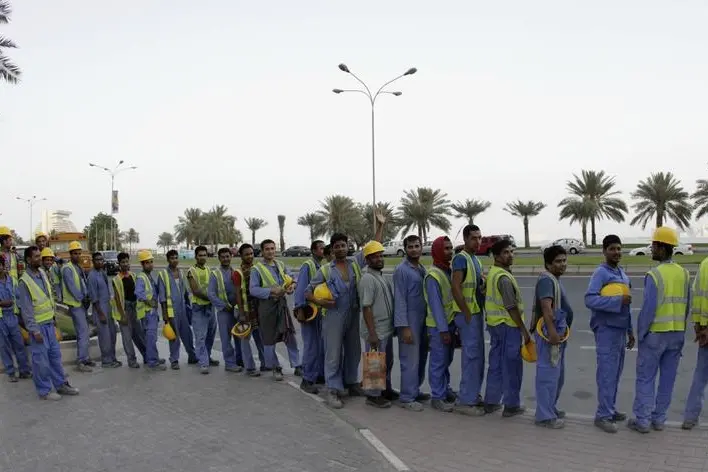PHOTO
Doha — Qatar has rejected Amnesty International’s claims in their report ‘New Name, Old System?’ that Law number 21 of 2015 fails to provide sufficient legislative protection for migrant workers.
“We remain committed to the development of a labor system that is fair to both employers and employees alike,” said Qatar government Communications Office in a press statement on Tuesday.
These new legislative changes, combined with ongoing enforcement and a commitment to systemic reform, not just in Qatar but also in countries of origin, will ensure workers’ rights are respected across the entire labor pathway, the statement said.
“We will continue to review and adapt our laws to ensure our approach to reform is fit for purpose,” it said.
Qatar on Monday formally announced the end of its “kafala” (sponsorship) system.
In a long-expected announcement, Labor Minister Issa Bin Saad Al-Jafali Al-Nuaimi said the “kafala” rules would be abolished from Dec. 13.
He said a contract-based system to govern the Gulf emirate’s 2.1 million foreign workers would take its place.
Under “kafala”, all foreign workers working in Qatar require a local sponsor, in the form of an individual or company, and need their permission to switch jobs or leave the country.
Here’s the reply of Qatar government to a few questions:
Q: Will workers incur any costs during the Exit Permit Grievances Committee process?
A: No. An appeal process does not involve a cost to the worker or the employer.
Q: Will workers be required to attend the Exit Permit Grievances Committee during working hours?
A: Workers will be required to attend the committee at an agreed appointment time. The committee will have appointments available outside of normal working hours to accommodate workers’ complaints.
Separately, Metrash2 will be available 24 hours a day to initiate the complaint process. All workers will be informed about the status of their requests via SMS. Metrash2 will activate this service in the coming days.
Q: Will workers be provided with free legal assistance and translation throughout the proceedings of the committee?
A: Legal assistance is not required for the committee proceedings. However, translation services will be provided.
In cases where requests are denied, the worker has recourse to legal proceedings at which time they may wish to consider appointing representation. Should the worker be unable to afford legal representation, the court may provide an appointed legal representative.
Q: What proactive measures will be introduced to ensure that employers do not pressure or coerce workers into signing documents authorizing them to keep their passport, and that employers return passports to workers on request?
A: Our labor inspection regime includes direct contact with workers to ensure their grievances are adequately addressed. There are also mechanisms in place to alert the authorities to mistreatment as and when it occurs, including a 24/7hotline and e-government services located throughout the country.
Where an employer is found to have held a passport illegally they will face the stiffest penalties in the region, which includes a QR25,000 fine for each instance of passport confiscation.
Q: Can you make it clear that “absconding” charges filed against workers who have lodged labor complaints against their employer will be disregarded until the case has been resolved by the Ministry of Administrative Development, Labor and Social Affairs or Labor Courts?
A: An employer cannot lodge absconding charges after an employee has lodged a complaint with the Ministry of Administrative Development Labor, and Social Affairs or Labor Courts. In the case of a dispute between employer and employee, we urge employees to contact the Ministry or Court as soon as possible.
© The Saudi Gazette 2016





















